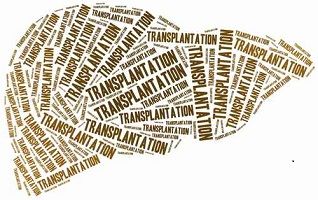Article
Study Charges Liver Transplant Centers with Letting Sickest Die
Author(s):
Liver transplant centers may be letting their sickest patients die waiting for a donor liver in an effort to improve their statistics on successful transplants, a new study charges.

Liver transplant centers may be letting their sickest patients die waiting for a liver in an effort to improve their statistics on successful transplants, a new study charges.
A Medicare reform meant to assure quality care in liver transplant centers has instead resulted in some of the centers giving up on the most seriously ill patients, a Massachusetts study found.
In an article due to appear in the Journal of the American College of Surgeons, Natasha Dolgin, an MD/ PhD candidate and transplant surgeon Adel Bozorgazdeh, MD, both of the UMass Memorial Medical Center in Worcester, MA, and colleagues found that between mid-2007 and 2012, thousands of potential transplant patients were “de-listed.” In other words, they were removed from lists of patients approved for transplants and awaiting donors.
That included 4,300 patients who were taken off waiting lists for donor organs because they were too sick, and probably would not have survived as long as transplant candidates who were healthier.
The finding is disturbing, the authors wrote, because “The central tenant of liver transplant allocation is to prioritize the sickest first.”
The trend of de-listing the sickest patients began just as the US Centers for Medicare and Medicaid Services (CMS) began publishing transplant outcomes data for surgeons and facilities.
Once they were taken off waiting lists, an estimated 80% of patients waiting for a liver died within two weeks.
"Although the [CMS] policy was a quality improvement initiative designed to improve transplant patient outcomes, in reality, it failed to show beneficial effects in the liver transplant population," Dolgin said.
The number of patients de-listed because of severity of illness jumped by 16% immediately after the CMS policy was implemented and continued to grow by 3% per year through the end of the study, the team found.
The researchers looked at the cases of 90,765 adult candidates listed at 102 transplant centers from April 2002 to December 2012.
chief of the division of multiorgan transplantation and hepatobiliary surgery and vice-chair of the department of surgery at Hahnemann University Hospital and Drexel University College of Medicine in Philadelphia, s
Asked to comment on the findings, David Reich, MD, aid the findings were credible.
Reich said he hadn't seen the journal report but noted that " increased scrutiny of outcomes, particularly by a major payer, leads to risk aversion regarding both patient selection and organ donor selection."
As a result, trying to avert risk "does inhibit access to transplant," Reich said.
The solution may lie partly in adjust risk calculations, such as the advantages that come with transplanting a fatty liver into a particular patient who might benefit from an organ in that condition.
"Similarly, patients awaiting transplant manifest a spectrum of cardiovascular risk factors missed by current risk adjustment and so patients may lose access to life saving treatment, Reich said.
"In time, risk adjustment will improve and mitigate against risk aversion, " he said.
The UMass team also presented their findings in September at the annual meeting of the New England Surgical Society.
Dolgin said she has had no response to the study from CMS.
The researchers did not publish any findings specific to individual transplant centers, she added.




